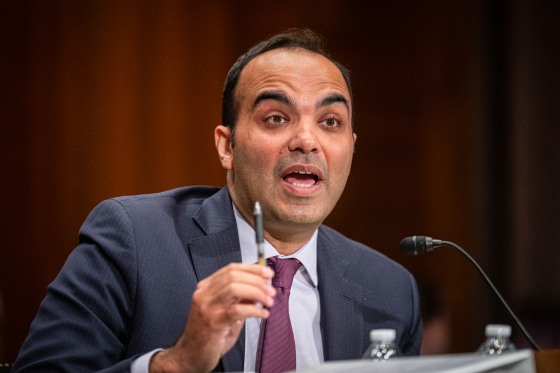
A definitive version of the Consumer Financial Protection Bureau’s announcement that it will soon oversee nonbank companies that provide financial services including wallet apps and payments was released on Thursday.
The examination, which is intended to make sure the newer entrants follow the same rules that banks and credit unions do, would apply to tech titans and payments companies that process at least 50 million transactions a year, the CFPB announced in a release.
Seven nonbanks are eligible for the further inspection, according to the CFPB. This would include peer-to-peer services like Venmo and Zelle, fintech companies like PayPal and Block, and payment systems from Apple, Google, and Amazon.
The new rule enables the CFPB to treat tech companies more like banks, even though it previously had considerable authority over them due to its supervision of electronic financial transfers. It allows it to demand documents and conduct personnel interviews, subjecting the companies to proactive inspections to guarantee legal compliance.
According to CFPB Director Rohit Chopra, digital payments have evolved from a curiosity to a need, and our oversight needs to take this into account. The rule will prohibit unauthorized account closures, preserve customer privacy, and fight against fraud.
The CFPB stated a year ago that it wished to expand its supervision to include internet and fintech firms that provide financial services but have evaded greater scrutiny by collaborating with banks. More and more Americans are holding cash on their phones and making regular purchases via payment apps, which operate as de facto bank accounts.
According to the CFPB on Thursday, the most widely used apps covered by the rule handle over 13 billion consumer payments annually and have become especially popular among users with low and moderate incomes.
According to the regulator, what started out as a practical cash substitute has developed into a vital financial instrument that handles more than $1 trillion in payments between customers and their friends, family, and enterprises.
The original plan would have applied some of the same scrutiny that the CFPB applies to banks and credit unions to businesses that handle at least 5 million transactions a year. The regulator stated Thursday that the final regulation increased that bar to 50 million transactions, reducing the additional powers from about 17 corporations to only seven.
The regulation does not apply to payment apps that are exclusive to a single retailer, such as Starbucks.
Banks have long believed that tech companies entering the financial services market should be closely watched, and the new CFPB rule is one of the few times the U.S. banking sector has openly backed the regulator’s activities.
The regulation will go into effect 30 days after it is published in the Federal Register, according to the CFPB.
Expanded regulation of digital businesses may be in line with future CFPB leadership, but it is unclear if the incoming Trump administration will choose to repeal or alter the new rule.
More from CNBC:
-
Target s recent trade imports data tells the real story behind the massive earnings miss
-
Novogratz warns that there will be a bitcoin correction, says crypto is levered to the gills
-
Here are the best travel credit cards that can save you hundreds on your next vacation
Note: Thank you for visiting our website! We strive to keep you informed with the latest updates based on expected timelines, although please note that we are not affiliated with any official bodies. Our team is committed to ensuring accuracy and transparency in our reporting, verifying all information before publication. We aim to bring you reliable news, and if you have any questions or concerns about our content, feel free to reach out to us via email. We appreciate your trust and support!
